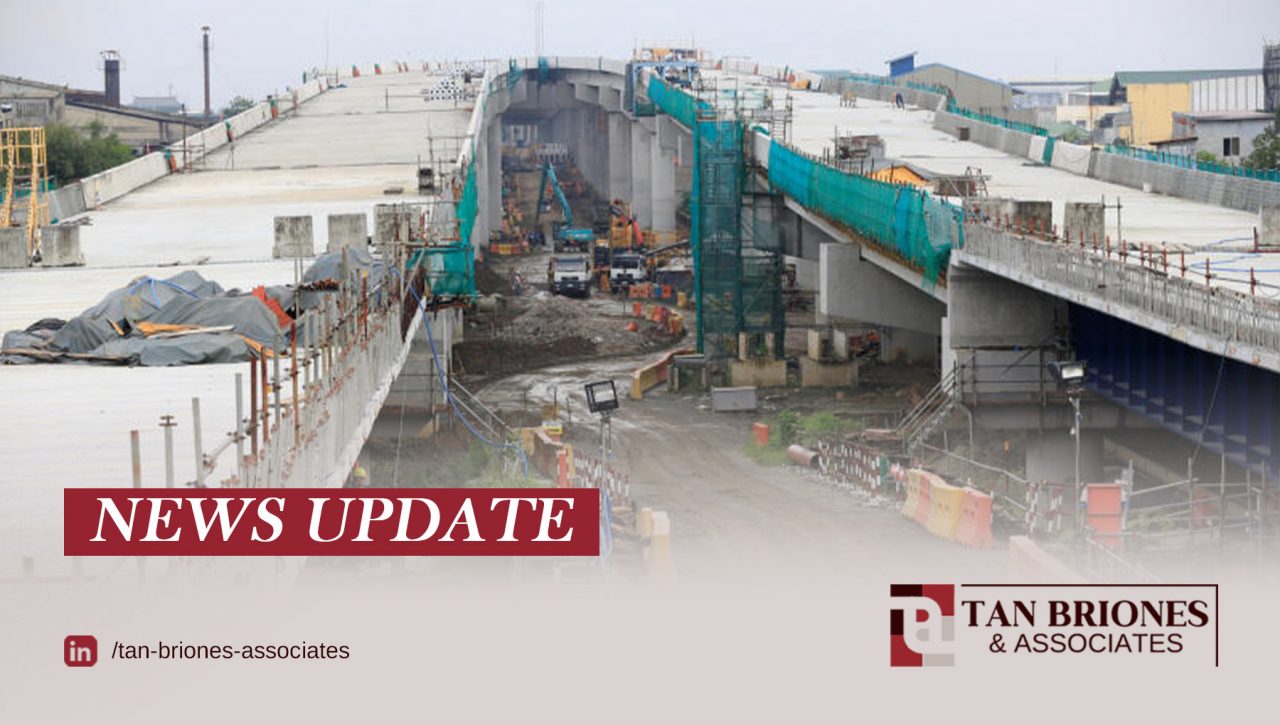
A new right-of-way law streamlining property acquisition for infrastructure projects has been enacted to address long-standing delays that have hampered public works and discouraged private investment.
Republic Act (RA) No. 12289, signed by President Ferdinand R. Marcos Jr. on September 12, amends the 2016 Right-of-Way Act (RA 10752) by overhauling land acquisition, compensation, expropriation, and relocation procedures.
The measure applies to national government projects as well as those of government-owned and -controlled corporations (GOCCs) and private entities providing public services such as energy, water, telecommunications, airports, seaports, and irrigation. Meanwhile, local governments may also adopt its provisions for their own initiatives.
Known as the Accelerated and Reformed Right-of-Way (ARROW) Act, the law aligns price offers for land and improvements with the valuation system under the 2024 Real Property Valuation and Assessment Reform Act (RA 12001). In the absence of an approved schedule of market values (SMV), the Bureau of Internal Revenue’s zonal valuation and the assessed value of improvements will apply.
Under the revised rules on negotiated sale, the implementing agency or private entity shall offer as compensation “the market value of the land based on the schedule of market values (SMV), the replacement cost of structures and improvements therein, taking depreciation into consideration, and the market value of crops and trees.”
Upon executing the deed of sale, the implementing agency or the private entity must pay the property owner “50 percent of the negotiated price of the affected land… and 70 percent of the negotiated price of the affected structures, improvements, crops, and trees,” with the remaining “50 percent of the negotiated price of the affected land and 30 percent of the negotiated price of the affected structures, improvements, crops, and trees” released after the property is cleared and the title transferred or annotated.
For expropriation, the implementing agency or private entity must, “upon the filing of the complaint… deposit to the court in favor of the property owner the amount equivalent to… 15 percent of the market value of the land; 100 percent of the replacement cost, taking into consideration depreciation of the improvements, including machinery considered as immovable under Article 415 of the New Civil Code, and structures; and 15 percent of the market value of crops and trees located within the property.”
The law also tasks the Department of Human Settlements and Urban Development, in coordination with local governments, to provide resettlement sites and services for displaced families.
Moreover, PPP projects will follow procedures under the PPP Code (RA 11966), while compensation for relocating utilities affected by national projects will follow guidelines set by relevant regulators.
To promote transparency, agencies and private entities must disclose key information on right-of-way processes, including the status of claims and expropriation cases, subject to data privacy laws. The measure also reinforces the ban on lower court injunctions that could delay infrastructure projects under RA 8975.
An inter-agency committee led by the Department of Public Works and Highways will draft the implementing rules within 60 days.
RA 12289, except for transactions with prior compensation agreements, applies to ongoing and future right-of-way cases and takes effect 15 days after publication in the Official Gazette or a newspaper of general circulation.
Follow Tan Briones & Associates on LinkedIn for more legal updates and law-related articles.







